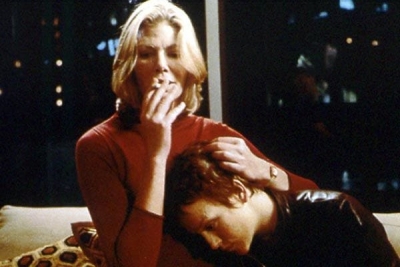La Trobe University Essay
Death and bereavement come to us all, often as the most challenging experiences of our lives. In the end, we must all confront the inevitability of our own mortality. A study of dying and responses to death takes us to the heart of the history of any culture, and sharpens our understanding of the meaning of our lives. Despite the significance of death in human life, Ken Inglis and other scholars observed in the twentieth century ‘a modern distaste for the physical facts of mortality and a modern aversion to the darkness of mourning’. Only in the last twenty years has the taboo on death begun to lift. Public and academic concern has been stimulated by the AIDS epidemic, by debates about euthanasia, palliative care, and suicide rates, and by medical technology’s increasing interventions to prolong life. However, historians in Australia have been slower to participate in this discussion than colleagues in France, the USA, and Britain, especially for the nineteenth century. My own contribution is a book entitled Australian Ways of Death: A social and cultural history 1840–1918, and this essay tells an essential and distinctively Australian part of that story.
... (read more)Querulous impatience has overtaken discussion of Aboriginal matters in some quarters. ‘If we apologise, they must forgive and then assimilate. Invite them to discussions about how to ameliorate their misery – the disintegration of community, the alcoholism, the glue sniffing. But they mustn’t talk “ideology”. We’ve had enough brooding over the past, heard enough about treaties and self-determination, and more than enough about genocide. It’s time to move on.’ That’s what I hear and in that tone.
... (read more)For any editor, one of the attractions and challenges of shaping a magazine is the unexpected submission that arrives at the eleventh hour. When the author happens to be someone of the stature of Raimond Gaita, one is indeed fortunate. This month, we are pleased to be able to bring you Professor Gaita’s incisive, yet anguished, contribution to the debate about reconciliation and genocidal impulses in Australian history. His piece, entitled ‘Why the Impatience? Genocide, “Ideology” and Practical Reconciliation’, is our La Trobe University Essay for July. It takes up some of the issues raised by Inga Clendinnen in the Australian Review of Books, an essay that prompted much correspondence in the June issue of that publication.
... (read more)La Trobe University Essay | 'Infidelity: "The Monkey’s Mask" in Poetry and Film' by David McCooey
Movies are often criticised for their lack of fidelity, for not keeping faith with their sources, especially novels, their audience, or their glorious antecedents. Infidelity is also a key plot device, especially of genre films: melodrama, comedy, crime, even the western. We keep going back to the movies partly because they don’t give us what we want. The New York poet Frank O’Hara suggests this in ‘An Image of Leda’, his breathless adaptation of the myth of Leda and the Swan as an allegory for watching films:
... (read more)As mouths go, it must be one of the most fabled of the century past. The lips, as widely parted as they could be, suggest the contours of a distended heart. There is an upper gallery of teeth, slightly imperfect, and glazed by spittle mingling with the crystal darts and droplets of a powerful jet of water issuing relentlessly from above the face. A mottled tongue is ...


